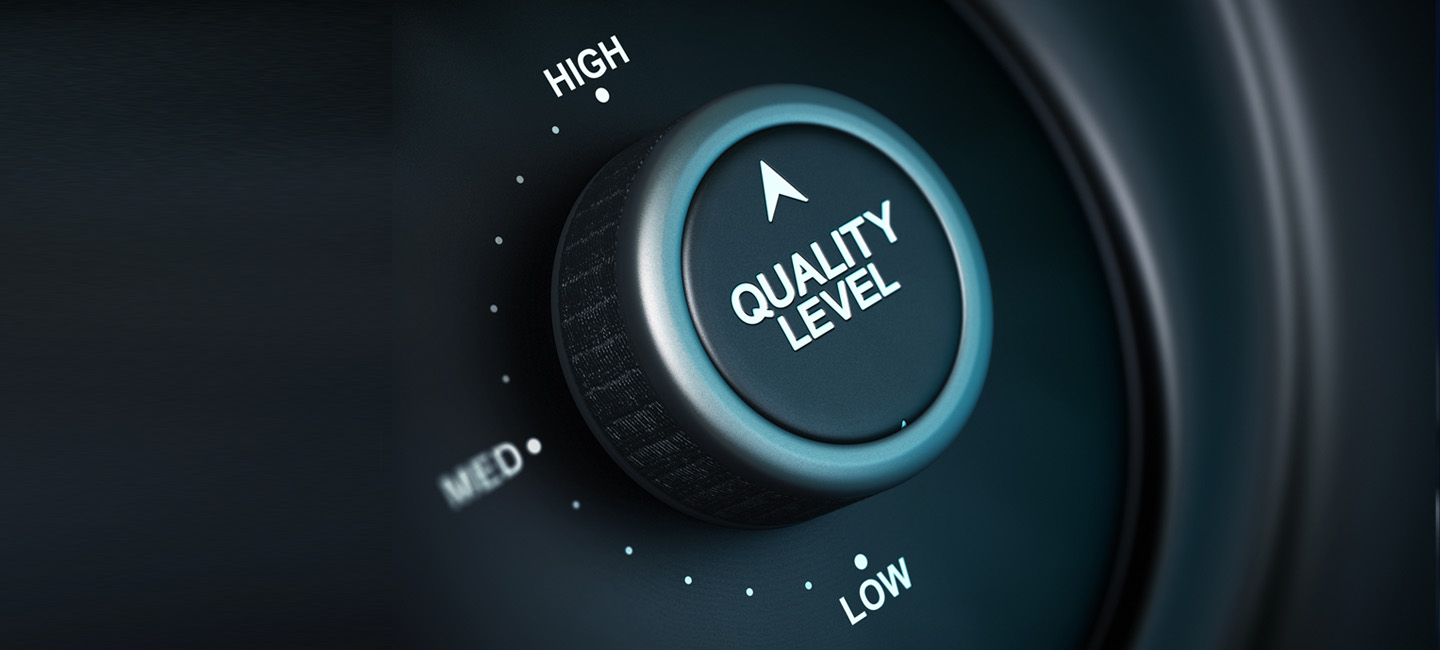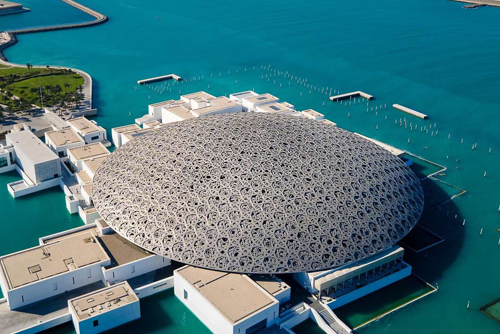
Vision
Developing Abu Dhabi's Quality Infrastructure to enable global distinction of the Emirate.

Mission
To lead, facilitate and develop an efficient, effective and globally integrated quality infrastructure in Abu Dhabi that promotes a culture of quality, enhances industrial development and competitiveness as well as ensures consumer safety.

Values
Transparency, Goal orientation, Initiative, Innovation and Commitment
The Council Services

Consumer & Market Services
Abu Dhabi government seeks for fairer and safer market within the emirate; where the import and export of consumer products are being properly inspected and monitored.

Conformity Services Department
A specification is a document that is issued by consensus, and then approved by a recognized body. The specifications provide rules, guidelines, or specifications for specific products or services in order to achieve the optimal system. Specifications become regulations if approved by law. Specifications usually focus on performance in order to minimize technical obstacles.

Laboratory Services
Central testing laboratory (CTL) was established by merging 9 government laboratories in Abu Dhabi into one central setup to ease quality and safety based testing under one roof in addition to reducing the cost of testing services. The laboratory's current capabilities include testing water, medicines, foodstuffs and building materials with a vision to expand services in the…
News & Events

H.E. Engineer Abdullah Hassan Al Muaini, Executive Director of Testing Services Sector, said: Our participation in the Emirates Agricultural Conference and Exhibition 2025 reflects ADQCC's commitment, in collaboration with M42, to support the quality and conformity of agricultural products. We believe in the importance of public-private partnerships in driving agricultural development, fostering innovation, and sharing expertise to ensure the sustainability of this vital sector.’
During the conference, the Council plans to present a research paper highlighting the latest global trends in agricultural inspection and testing and the role of advanced technology in raising the quality and safety of products. The paper will also address the current challenges and opportunities to develop sustainable agriculture practices by providing innovative solutions based on experience and expertise.
The Emirates Agricultural Conference and Exhibition 2025 is a strategic platform that brings together farmers, investors, experts, and government entities, allowing them to exchange expertise and learn about the latest innovations and solutions, such as vertical farming, smart irrigation systems, and agricultural products for Emirati farmers.
The event aims to promote cooperation between the public and private sectors, stimulate agricultural investments, support local products, and empower youth and the community to actively contribute to this vital sector. It is also a prominent opportunity to highlight the importance of sustainable agriculture in achieving food security and boosting the national economy.
H.E. Engineer Abdullah Hassan Al Muaini, Executive Director of Testing Services Sector, said: Our participation in the Emirates Agricultural Conference and Exhibition 2025 reflects ADQCC's commitment, in collaboration with M42, to support the quality and conformity of agricultural products. We believe in the importance of public-private partnerships in driving agricultural development, fostering innovation, and sharing expertise to ensure the sustainability of this vital sector.’
During the conference, the Council plans to present a research paper highlighting the latest global trends in agricultural inspection and testing and the role of advanced technology in raising the quality and safety of products. The paper will also address the current challenges and opportunities to develop sustainable agriculture practices by providing innovative solutions based on experience and expertise.
The Emirates Agricultural Conference and Exhibition 2025 is a strategic platform that brings together farmers, investors, experts, and government entities, allowing them to exchange expertise and learn about the latest innovations and solutions, such as vertical farming, smart irrigation systems, and agricultural products for Emirati farmers.
The event aims to promote cooperation between the public and private sectors, stimulate agricultural investments, support local products, and empower youth and the community to actively contribute to this vital sector. It is also a prominent opportunity to highlight the importance of sustainable agriculture in achieving food security and boosting the national economy.

The Council aims to strengthen the industry by providing inspection, testing, and conformity services across various sectors, including food, water, pharmaceuticals, medical devices, agriculture, and environmental safety.
It also supports specialized research and consultancy in industrial production processes, local product development, and the integration of advanced technologies—including artificial intelligence—to enhance data processing and operational efficiency.
The forum serves as an ideal platform for innovators, investors, and policymakers to come together over four days to explore the latest innovations, address industry challenges and opportunities, and foster collaboration among various entities to drive industrial growth and create a favorable investment environment.
Through this participation, ADQCC aims to support the industrial sector and reinforce national identity by empowering various professions and contributing to an investment environment that promotes the UAE’s national industry. This aligns with the UAE’s vision, which emphasizes innovation, sustainable growth, and the importance of collaboration in shaping the future of industry in the country.
H.E. Fahad Ghareeb Al Shamsi, the Council’s Acting Secretary General, stated: “Our participation in the ‘Make it in the Emirates 2025’ forum reflects ADQCC’s commitment to fostering innovation and driving industrial growth in the UAE.”
“Collaboration across sectors is essential to achieving our shared vision for a sustainable industrial future. We invite all stakeholders to take part in this important event, explore new opportunities, and foster innovation,” he added.
Dr. Fahed Al Marzooqi, Chief Executive Officer of M42's Integrated Health Solutions platform, said: “Our participation alongside ADQCC at Make it in the Emirates 2025 highlights the vital role that technology is playing in shaping the future of healthcare industry. Our long-term partnership with ADQCC, through the management and operation of the Central Testing Laboratory, reflects a shared commitment to advancing public health and safety. By enhancing national testing and conformity standards across sectors like food, water and medical devices, and supporting research and local product development, we are aligning innovation in health with the UAE’s industrial goals and diversification ambitions. This collaboration is a powerful example of how cross-sector partnerships can accelerate progress toward a more resilient, healthier and knowledge-based economy.”
The Council invites the public, investors, and all interested parties to participate in the ‘Make it in the Emirates 2025’ forum to explore new opportunities and contribute to the UAE’s growth and innovation goals. Teamwork and effective partnerships are key to building a bright and successful industrial future for the nation.
The Council aims to strengthen the industry by providing inspection, testing, and conformity services across various sectors, including food, water, pharmaceuticals, medical devices, agriculture, and environmental safety.
It also supports specialized research and consultancy in industrial production processes, local product development, and the integration of advanced technologies—including artificial intelligence—to enhance data processing and operational efficiency.
The forum serves as an ideal platform for innovators, investors, and policymakers to come together over four days to explore the latest innovations, address industry challenges and opportunities, and foster collaboration among various entities to drive industrial growth and create a favorable investment environment.
Through this participation, ADQCC aims to support the industrial sector and reinforce national identity by empowering various professions and contributing to an investment environment that promotes the UAE’s national industry. This aligns with the UAE’s vision, which emphasizes innovation, sustainable growth, and the importance of collaboration in shaping the future of industry in the country.
H.E. Fahad Ghareeb Al Shamsi, the Council’s Acting Secretary General, stated: “Our participation in the ‘Make it in the Emirates 2025’ forum reflects ADQCC’s commitment to fostering innovation and driving industrial growth in the UAE.”
“Collaboration across sectors is essential to achieving our shared vision for a sustainable industrial future. We invite all stakeholders to take part in this important event, explore new opportunities, and foster innovation,” he added.
Dr. Fahed Al Marzooqi, Chief Executive Officer of M42's Integrated Health Solutions platform, said: “Our participation alongside ADQCC at Make it in the Emirates 2025 highlights the vital role that technology is playing in shaping the future of healthcare industry. Our long-term partnership with ADQCC, through the management and operation of the Central Testing Laboratory, reflects a shared commitment to advancing public health and safety. By enhancing national testing and conformity standards across sectors like food, water and medical devices, and supporting research and local product development, we are aligning innovation in health with the UAE’s industrial goals and diversification ambitions. This collaboration is a powerful example of how cross-sector partnerships can accelerate progress toward a more resilient, healthier and knowledge-based economy.”
The Council invites the public, investors, and all interested parties to participate in the ‘Make it in the Emirates 2025’ forum to explore new opportunities and contribute to the UAE’s growth and innovation goals. Teamwork and effective partnerships are key to building a bright and successful industrial future for the nation.

Through its routine inspection operations, the sector ensured the accuracy and quality of pre-packaged goods in the local markets, verifying around 492 packages, equivalent to 12,284 samples, during the same period.
In addition, six products comprising 72 items were withdrawn from markets for non-compliance with required specifications and standards, while 41 products comprising 1,263 items were corrected. The data also showed that five products listed as globally recalled were found in local markets.
Meanwhile, the Central Testing Laboratory, affiliated with the Council, conducted 114,816 laboratory tests across various fields, including food, beverages, water, pharmaceuticals, medical equipment, building and construction materials, transformer oils, environment, agriculture, and cosmetics.
With regard to laboratory statistics, water testing topped the list with a total of 64,032 tests, followed by food and beverage testing with 41,833 tests, and environmental testing with 5,462 tests.
During the same period, the laboratory also carried out approximately 1,854 tests on building and construction materials, 232 agricultural tests, 562 transformer oil tests, 473 general laboratory tests, 317 cosmetics tests, and 32 tests on pharmaceuticals and medical equipment, in addition to providing 19 technical consultations.
Statistics from the Emirates Metrology Institute, part of QCC, showed that a total of 425 calibration services were carried out, alongside 14 inter-laboratory comparisons, five technical consultations, and one training service.
In parallel, the Conformity and Standards Services Sector renewed 2,963 personnel conformity certificates and issued 2,314 new ones. It also renewed 69 product conformity certificates and issued 12 new ones, in addition to issuing 22 product registration certificates, renewing eight Trustmark licenses, and granting 12 new ones.Abu Dhabi, April 25, 2025 Abu Dhabi Quality and Conformity Council (QCC) achieved positive performance indicators across its operational sectors during the first quarter of 2025. The Markets and Consumer Services Sector inspected 28,655 products to verify their compliance with standards.
Through its routine inspection operations, the sector ensured the accuracy and quality of pre-packaged goods in the local markets, verifying around 492 packages, equivalent to 12,284 samples, during the same period.
In addition, six products comprising 72 items were withdrawn from markets for non-compliance with required specifications and standards, while 41 products comprising 1,263 items were corrected. The data also showed that five products listed as globally recalled were found in local markets.
Meanwhile, the Central Testing Laboratory, affiliated with the Council, conducted 114,816 laboratory tests across various fields, including food, beverages, water, pharmaceuticals, medical equipment, building and construction materials, transformer oils, environment, agriculture, and cosmetics.
With regard to laboratory statistics, water testing topped the list with a total of 64,032 tests, followed by food and beverage testing with 41,833 tests, and environmental testing with 5,462 tests.
During the same period, the laboratory also carried out approximately 1,854 tests on building and construction materials, 232 agricultural tests, 562 transformer oil tests, 473 general laboratory tests, 317 cosmetics tests, and 32 tests on pharmaceuticals and medical equipment, in addition to providing 19 technical consultations.
Statistics from the Emirates Metrology Institute, part of QCC, showed that a total of 425 calibration services were carried out, alongside 14 inter-laboratory comparisons, five technical consultations, and one training service.
In parallel, the Conformity and Standards Services Sector renewed 2,963 personnel conformity certificates and issued 2,314 new ones. It also renewed 69 product conformity certificates and issued 12 new ones, in addition to issuing 22 product registration certificates, renewing eight Trustmark licenses, and granting 12 new ones.Abu Dhabi, April 25, 2025 Abu Dhabi Quality and Conformity Council (QCC) achieved positive performance indicators across its operational sectors during the first quarter of 2025. The Markets and Consumer Services Sector inspected 28,655 products to verify their compliance with standards.

Fasting is an ideal opportunity to rethink dietary habits and make healthier choices, and the Nutrition Label system helps fasting people to easily choose the right foods, improving overall health and minimizing issues associated with fasting, such as fatigue, dehydration and vitamin deficiencies.
The Nutrition Label is based on an innovative visual classification of food products into five categories from A to E, with different colors reflecting their nutritional value, which helps consumers, especially during fasting periods, to choose foods that are rich in essential nutrients, while reducing the consumption of products with low nutritional values.
The nutrition labeling system provides several benefits that support public health and enhance quality of life, including improving nutritional awareness by providing consumers with clear information about the nutritional value of foods, enabling them to make informed health decisions; promoting general health by helping to choose balanced meals that contain essential nutrients, reducing fatigue and dehydration during fasting; and enabling consumers to easily select the healthiest food products, encouraging the adoption of sustainable and long-term eating habits in line with the UAE's vision to enhance quality of life and reduce health risks
H.E. Engineer Abdullah Hassan Al Muaini, Executive Director of the Central Testing Laboratory, emphasized the importance of this system in achieving a qualitative leap in nutritional awareness,
‘The nutrition labeling system represents a strategic step towards promoting public health, especially during the holy month of Ramadan, when choosing healthy foods becomes a priority to maintain the body's balance,’ He said.
’this initiative supports individuals in making scientifically-based nutritional decisions, which contributes to enhancing the quality of life and preventing malnutrition-related diseases.’ He added.
MR. Muaini explained that the application of the nutrition label on food products is scheduled to start in mid-2025, with the first phase covering oils, dairy products, beverages, bakery products and baby food, with future expansion plans to cover more food categories.
The Executive Director of the Central Testing Laboratory confirmed that the Abu Dhabi Quality and Conformity Council will provide technical support to manufacturers to improve the quality of food products and raise health and food safety standards in the country.
The initiative reflects the UAE's commitment to creating a more conscious food environment where consumers, especially those who are fasting, can make healthier and more sustainable food choices.
Through the labeling system, a healthy lifestyle that minimizes chronic diseases, improves energy levels and promotes overall wellbeing is promoted, in line with the national vision to make the UAE one of the most advanced countries in terms of public health and wellbeing.
As efforts continue to enhance the quality of life in the country, the Nutritional Labeling System represents a pioneering step towards a healthier dietary future, where everyone, especially during Ramadan, has the opportunity to make conscious food choices that improve the quality of life and enhance the health of individuals and society as a whole.
Fasting is an ideal opportunity to rethink dietary habits and make healthier choices, and the Nutrition Label system helps fasting people to easily choose the right foods, improving overall health and minimizing issues associated with fasting, such as fatigue, dehydration and vitamin deficiencies.
The Nutrition Label is based on an innovative visual classification of food products into five categories from A to E, with different colors reflecting their nutritional value, which helps consumers, especially during fasting periods, to choose foods that are rich in essential nutrients, while reducing the consumption of products with low nutritional values.
The nutrition labeling system provides several benefits that support public health and enhance quality of life, including improving nutritional awareness by providing consumers with clear information about the nutritional value of foods, enabling them to make informed health decisions; promoting general health by helping to choose balanced meals that contain essential nutrients, reducing fatigue and dehydration during fasting; and enabling consumers to easily select the healthiest food products, encouraging the adoption of sustainable and long-term eating habits in line with the UAE's vision to enhance quality of life and reduce health risks
H.E. Engineer Abdullah Hassan Al Muaini, Executive Director of the Central Testing Laboratory, emphasized the importance of this system in achieving a qualitative leap in nutritional awareness,
‘The nutrition labeling system represents a strategic step towards promoting public health, especially during the holy month of Ramadan, when choosing healthy foods becomes a priority to maintain the body's balance,’ He said.
’this initiative supports individuals in making scientifically-based nutritional decisions, which contributes to enhancing the quality of life and preventing malnutrition-related diseases.’ He added.
MR. Muaini explained that the application of the nutrition label on food products is scheduled to start in mid-2025, with the first phase covering oils, dairy products, beverages, bakery products and baby food, with future expansion plans to cover more food categories.
The Executive Director of the Central Testing Laboratory confirmed that the Abu Dhabi Quality and Conformity Council will provide technical support to manufacturers to improve the quality of food products and raise health and food safety standards in the country.
The initiative reflects the UAE's commitment to creating a more conscious food environment where consumers, especially those who are fasting, can make healthier and more sustainable food choices.
Through the labeling system, a healthy lifestyle that minimizes chronic diseases, improves energy levels and promotes overall wellbeing is promoted, in line with the national vision to make the UAE one of the most advanced countries in terms of public health and wellbeing.
As efforts continue to enhance the quality of life in the country, the Nutritional Labeling System represents a pioneering step towards a healthier dietary future, where everyone, especially during Ramadan, has the opportunity to make conscious food choices that improve the quality of life and enhance the health of individuals and society as a whole.

The ‘Nutri-mark’ label initiative is the first of its kind in the region, a pioneering nutritional labeling system that will be placed on the front end of food products. ‘Nutri-mark’ is designed to promote healthier eating habits and enable consumers to make healthier and informed decisions. The guideline aims to enhance food manufacturer’s understanding of product nutritional value through standardised nutritional labeling. The system utilises an A-to-E letter grade (A being the highest nutritional quality) and a color-coded grading system (green to red) that simplifies comparisons of nutritional value within the same food category.
H.E. Dr. Omniyat Al Hajeri, Executive Director of the Community Health Sector at Abu Dhabi Public Health Centre, said: “The launch of the Abu Dhabi guideline for the use of the Nutri-mark label reflects Abu Dhabi Public Health Centre’s (ADPHC) unwavering commitment to enhancing the community’s health and well-being in the Emirate. This initiative serves as a testament to ADPHC’s dedication to addressing the obesity health crisis, setting new benchmarks for food labeling on a local and global scale. Through empowering consumers with clear, accessible information and fostering accountability within the food industry, we are laying the foundation for a healthier population. In collaboration with our esteemed partners, we will continue to pursue innovative solutions that create a lasting impact and enable our community to make informed healthier decisions.”
H.E. Engineer Bader Khamis Alshemaili, Executive Director of the Conformity and Standards Services Sector at the Abu Dhabi Quality and Conformity Council and Chairman of the Standard Technical Committee said: “The development of Abu Dhabi’s guideline for the ‘Nutri-mark’ label represents a strategic step in promoting health awareness among consumers. The Council is working closely with our partners to achieve the goals of the Obesity Control Programme, by supporting companies in enhancing the nutritional value of their products, reducing the prevalence of obesity, and mitigating the long-term costs associated with chronic diseases.”
The guideline serves as a strategic tool to support Abu Dhabi’s efforts to combat obesity and promote community health, encouraging food companies to enhance the nutritional quality of their products and contribute to reducing obesity rates and improving the overall well-being of the community. Additionally, it outlines principles, requirements and responsibilities for food manufacturers implementing the ‘Nutri-mark’ label. Furthermore, they are provided with a standardised methodology for classifying products based on their nutritional composition and value, encouraging companies to reformulate products with healthier ingredients and facilitating informed food choices.
The guideline specifies the nutritional criteria that food manufacturers must adhere to when applying the Nutri-mark label, including requirements for fat content (total and saturated fats), carbohydrates and sugars, protein and fibre, salt content and calorie values. By ensuring standardized and transparent nutritional labeling, the initiative aims to improve consumer awareness and promote healthier food consumption patterns.
The approval of the guideline was part of the recurring meeting of the Standard Technical Committee for Abu Dhabi Standards during the fourth quarter of 2024, chaired by H.E. Engineer Bader Khamis Alshemaili, and attended by representatives from 25 governmental entities. The meeting also covered discussions on additional technical standards and guidance documents aimed at enhancing quality and ensuring regulatory compliance across various sectors in Abu Dhabi.
As part of its broader mission, the Abu Dhabi Quality and Conformity Council continues to lead efforts to advance public health, regulatory excellence, and quality assurance. The Council remains committed to supporting innovative solutions that enhance consumer well-being and create a healthier, more sustainable community.
The ‘Nutri-mark’ label initiative is the first of its kind in the region, a pioneering nutritional labeling system that will be placed on the front end of food products. ‘Nutri-mark’ is designed to promote healthier eating habits and enable consumers to make healthier and informed decisions. The guideline aims to enhance food manufacturer’s understanding of product nutritional value through standardised nutritional labeling. The system utilises an A-to-E letter grade (A being the highest nutritional quality) and a color-coded grading system (green to red) that simplifies comparisons of nutritional value within the same food category.
H.E. Dr. Omniyat Al Hajeri, Executive Director of the Community Health Sector at Abu Dhabi Public Health Centre, said: “The launch of the Abu Dhabi guideline for the use of the Nutri-mark label reflects Abu Dhabi Public Health Centre’s (ADPHC) unwavering commitment to enhancing the community’s health and well-being in the Emirate. This initiative serves as a testament to ADPHC’s dedication to addressing the obesity health crisis, setting new benchmarks for food labeling on a local and global scale. Through empowering consumers with clear, accessible information and fostering accountability within the food industry, we are laying the foundation for a healthier population. In collaboration with our esteemed partners, we will continue to pursue innovative solutions that create a lasting impact and enable our community to make informed healthier decisions.”
H.E. Engineer Bader Khamis Alshemaili, Executive Director of the Conformity and Standards Services Sector at the Abu Dhabi Quality and Conformity Council and Chairman of the Standard Technical Committee said: “The development of Abu Dhabi’s guideline for the ‘Nutri-mark’ label represents a strategic step in promoting health awareness among consumers. The Council is working closely with our partners to achieve the goals of the Obesity Control Programme, by supporting companies in enhancing the nutritional value of their products, reducing the prevalence of obesity, and mitigating the long-term costs associated with chronic diseases.”
The guideline serves as a strategic tool to support Abu Dhabi’s efforts to combat obesity and promote community health, encouraging food companies to enhance the nutritional quality of their products and contribute to reducing obesity rates and improving the overall well-being of the community. Additionally, it outlines principles, requirements and responsibilities for food manufacturers implementing the ‘Nutri-mark’ label. Furthermore, they are provided with a standardised methodology for classifying products based on their nutritional composition and value, encouraging companies to reformulate products with healthier ingredients and facilitating informed food choices.
The guideline specifies the nutritional criteria that food manufacturers must adhere to when applying the Nutri-mark label, including requirements for fat content (total and saturated fats), carbohydrates and sugars, protein and fibre, salt content and calorie values. By ensuring standardized and transparent nutritional labeling, the initiative aims to improve consumer awareness and promote healthier food consumption patterns.
The approval of the guideline was part of the recurring meeting of the Standard Technical Committee for Abu Dhabi Standards during the fourth quarter of 2024, chaired by H.E. Engineer Bader Khamis Alshemaili, and attended by representatives from 25 governmental entities. The meeting also covered discussions on additional technical standards and guidance documents aimed at enhancing quality and ensuring regulatory compliance across various sectors in Abu Dhabi.
As part of its broader mission, the Abu Dhabi Quality and Conformity Council continues to lead efforts to advance public health, regulatory excellence, and quality assurance. The Council remains committed to supporting innovative solutions that enhance consumer well-being and create a healthier, more sustainable community.

The event was attended by H.E. Engineer Abdulla Al Yazeedi, Acting Secretary General of the Abu Dhabi Quality and Conformity Council (ADQCC), along with the Council’s executive directors and a wide range of strategic partners from both the government and private sectors. It also saw the participation of numerous managers, experts, and specialists in the field of quality.
The program focused on key pillars aimed at strengthening the quality infrastructure in the Emirate of Abu Dhabi, including a comprehensive assessment of the current landscape. This involves analyzing the existing quality infrastructure and examining various related aspects to identify challenges and explore opportunities for improvement and development.
Additionally, the program seeks to understand the aspirations of stakeholders and strategic partners from both the public and private sectors, ensuring future directions align with their needs and requirements. A clear strategic vision will also be developed for the Council’s role in advancing quality infrastructure by identifying key priorities and responsibilities necessary to achieve the desired goals and support sustainable growth in this sector.
As part of the program’s implementation, ADQCC organized a series of workshops with relevant public and private sector entities. These workshops provided a platform to outline perspectives on current challenges facing the system, identify opportunities for improvement, and map out future aspirations for the Council’s role.
The insights gained from this program will serve as a strong foundation for defining the strategic direction of Abu Dhabi’s quality infrastructure system, contributing to enhanced service and product quality and driving sustainable development in the Emirate.
H.E. Engineer Abdulla Ahmed Al Yazeedi, Acting Secretary General, stated, “This program reaffirms ADQCC’s commitment to improving and strengthening quality infrastructure in the Emirate. Collaboration and coordination with all relevant partners from the public and private sectors are key to achieving our shared goals.”
He added, “The outcomes of these joint workshops will provide vital input for shaping and launching a comprehensive strategy to enhance and develop quality infrastructure, ultimately contributing to the aspirations of our wise leadership and reinforcing Abu Dhabi’s position as a leading hub for quality excellence.”
The event was attended by H.E. Engineer Abdulla Al Yazeedi, Acting Secretary General of the Abu Dhabi Quality and Conformity Council (ADQCC), along with the Council’s executive directors and a wide range of strategic partners from both the government and private sectors. It also saw the participation of numerous managers, experts, and specialists in the field of quality.
The program focused on key pillars aimed at strengthening the quality infrastructure in the Emirate of Abu Dhabi, including a comprehensive assessment of the current landscape. This involves analyzing the existing quality infrastructure and examining various related aspects to identify challenges and explore opportunities for improvement and development.
Additionally, the program seeks to understand the aspirations of stakeholders and strategic partners from both the public and private sectors, ensuring future directions align with their needs and requirements. A clear strategic vision will also be developed for the Council’s role in advancing quality infrastructure by identifying key priorities and responsibilities necessary to achieve the desired goals and support sustainable growth in this sector.
As part of the program’s implementation, ADQCC organized a series of workshops with relevant public and private sector entities. These workshops provided a platform to outline perspectives on current challenges facing the system, identify opportunities for improvement, and map out future aspirations for the Council’s role.
The insights gained from this program will serve as a strong foundation for defining the strategic direction of Abu Dhabi’s quality infrastructure system, contributing to enhanced service and product quality and driving sustainable development in the Emirate.
H.E. Engineer Abdulla Ahmed Al Yazeedi, Acting Secretary General, stated, “This program reaffirms ADQCC’s commitment to improving and strengthening quality infrastructure in the Emirate. Collaboration and coordination with all relevant partners from the public and private sectors are key to achieving our shared goals.”
He added, “The outcomes of these joint workshops will provide vital input for shaping and launching a comprehensive strategy to enhance and develop quality infrastructure, ultimately contributing to the aspirations of our wise leadership and reinforcing Abu Dhabi’s position as a leading hub for quality excellence.”



